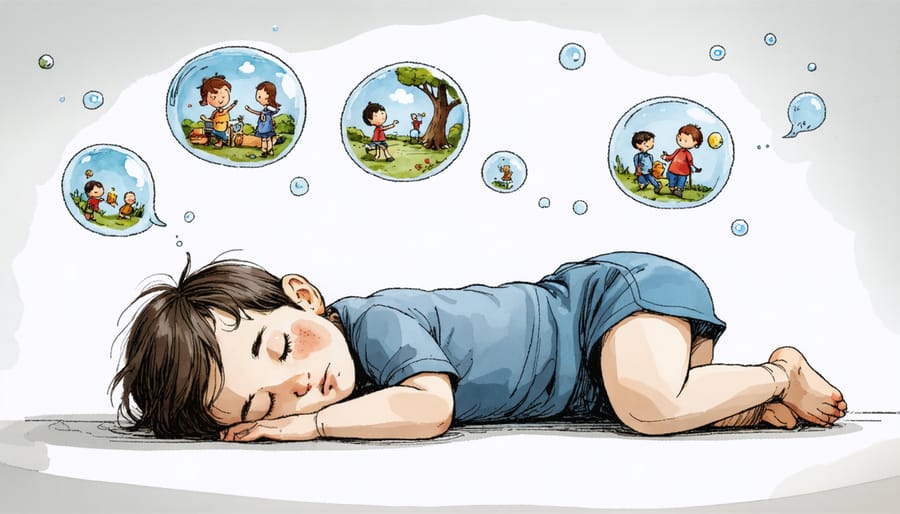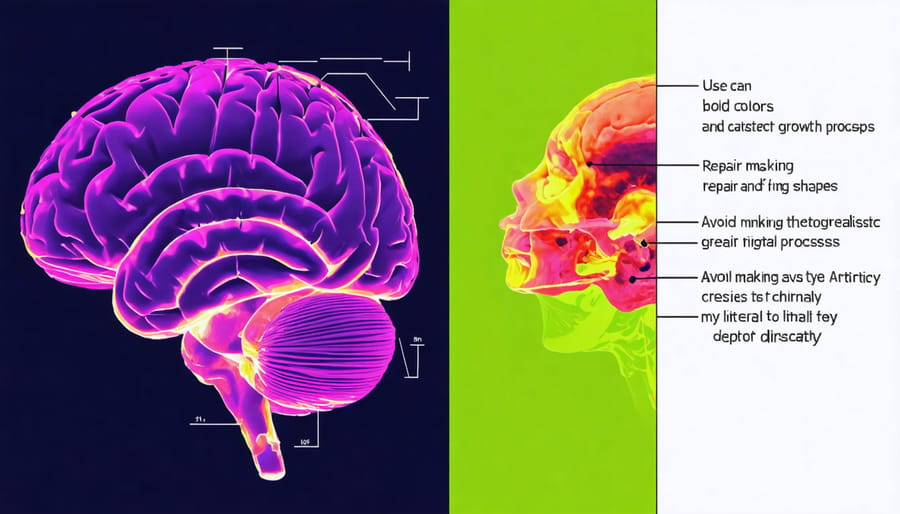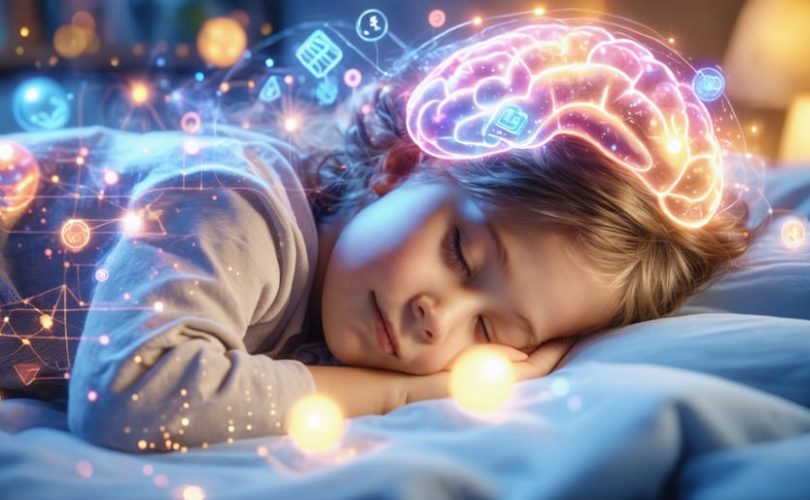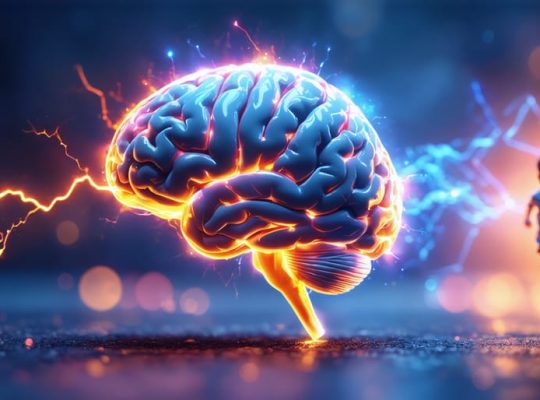Sleep shapes every aspect of your child’s development, from forming new memories to fighting off illnesses. As parents, understanding these vital functions helps us make informed decisions about our children’s sleep routines. Recent research from the National Sleep Foundation reveals that sleep does far more than simply restore energy – it actively builds brain connections, strengthens the immune system, and supports emotional regulation. While your child peacefully slumbers, their body and mind engage in remarkable processes that affect everything from their classroom performance to their growth patterns. Whether you’re a concerned parent seeking to optimize your child’s sleep schedule or an educator wanting to understand how rest impacts learning, discovering sleep’s five essential functions will transform how you view those precious hours of shuteye. Let’s explore the fascinating ways sleep works its magic, backed by the latest scientific findings and practical insights from pediatric sleep experts.
1. Memory Masters: How Sleep Strengthens Learning

The Nighttime Filing System
During sleep, our children’s brains work like efficient filing clerks, sorting through the day’s experiences and storing important information. Research has shown that sleep’s impact on memory is particularly crucial during childhood development. Think of it as a nightly clean-up crew that organizes memories into the right “folders” in the brain.
When your child sleeps, their brain doesn’t simply shut down – it’s actively processing information learned during the day. New skills practiced during waking hours, whether it’s multiplication tables or bike riding, are consolidated and stored in long-term memory. This is why children often perform better on tasks they’ve learned after a good night’s sleep.
The process is similar to downloading and organizing files on a computer, but instead of digital files, the brain is processing experiences, emotions, and knowledge. This nighttime filing system ensures that important information is readily available when needed, while less important details are cleared away to make room for new learning.
Learning While Sleeping
Sleep plays a fascinating role in learning and memory consolidation. During deep sleep, our brains process and store information from the day, converting short-term memories into long-term knowledge. Think of it as your child’s brain filing away everything they learned at school into permanent storage.
Dr. Sarah Chen, a pediatric sleep researcher, explains, “When children get quality sleep, their brains essentially replay the day’s learning experiences, strengthening neural connections and enhancing understanding.” This is why students who get adequate sleep typically perform better on tests and retain information more effectively than those who don’t.
Research shows that even a single night of good sleep after learning new material can improve recall by up to 40%. This is particularly important during exam periods or when children are mastering new skills. Additionally, well-rested children show better concentration, creativity, and problem-solving abilities in class.
For optimal learning benefits, experts recommend maintaining consistent sleep schedules and ensuring children get age-appropriate amounts of sleep, especially during school nights. Consider incorporating strategies from Test Anxiety in Children to help your child feel more prepared and confident.
2. Emotional Balance: Sleep’s Role in Mood Regulation
The Emotional Reset Button
Sleep serves as a natural emotional reset button for our children’s minds, helping them process and cope with the day’s experiences. Research shows that the connection between emotional stability and sleep is particularly strong in young minds. During sleep, the brain works to process difficult emotions and experiences, much like organizing a messy drawer.
Dr. Sarah Thompson, a child psychologist, explains it beautifully: “Think of sleep as your child’s emotional cleaning service. While they rest, their brain sorts through the day’s feelings, filing away happy memories and helping to heal from upset moments.”
This emotional processing during sleep explains why children often wake up more resilient and better equipped to handle challenges after a good night’s rest. It’s also why difficult emotions can feel more manageable in the morning, giving both parents and children a fresh start to tackle new day’s adventures.
Prevention of Emotional Meltdowns
Sleep plays a crucial role in managing our emotional responses, particularly in children. Dr. Sarah Chen, a pediatric sleep specialist, explains that “a well-rested brain is better equipped to handle daily challenges and regulate emotions.” When children don’t get enough sleep, their ability to process emotions becomes compromised, often leading to increased irritability, frustration, and emotional outbursts.
Parents often notice that their sleep-deprived children are more likely to experience meltdowns over seemingly minor issues. This happens because lack of sleep affects the amygdala – the brain’s emotional control center – making it harder to manage feelings and respond appropriately to situations.
Research shows that just one hour of lost sleep can significantly impact a child’s emotional stability. The good news is that maintaining consistent sleep schedules can dramatically improve emotional regulation, resulting in fewer meltdowns and better overall behavior. As one parent shared, “Once we prioritized our daughter’s sleep routine, we saw a remarkable difference in her ability to handle daily challenges.”

3. Growth and Healing: The Body’s Repair Shop
Growing Stronger Every Night
During sleep, our children’s bodies engage in an incredible process of growth and repair. Growth hormone, often called the “building blocks hormone,” is released in its highest amounts during deep sleep stages. Dr. Sarah Chen, a pediatric endocrinologist, explains it like this: “Think of sleep as your child’s personal construction time, where their body works overtime to build stronger muscles, longer bones, and healthier tissue.”
This nightly boost of growth hormone doesn’t just help kids get taller – it’s essential for repairing daily wear and tear, strengthening the immune system, and building muscle mass. That’s why young athletes often feel sore after skipping sleep, and why growing children need more sleep during growth spurts.
Parents often notice their children’s pajamas suddenly becoming too small – that’s because much of their physical growth actually happens during sleep. This natural nighttime construction work is one more reason why consistent, quality sleep is crucial for healthy development.
The Healing Process
During sleep, your body kicks into repair mode, working diligently to heal and restore itself. Think of it as your body’s maintenance crew coming in for the night shift. While your child sleeps, their immune system releases proteins called cytokines, which help fight off infections, inflammation, and stress. This is why we often feel the urge to sleep more when we’re sick – our bodies naturally know what they need to heal.
Sleep also plays a crucial role in physical recovery, especially for active children. During deep sleep, growth hormone is released, helping to repair muscles, strengthen bones, and promote healthy development. This repair process isn’t just about healing scrapes and bruises; it’s essential for everyday maintenance of tissues, organs, and the immune system.
Parents often notice that minor illnesses seem to improve after a good night’s sleep. That’s because during rest, your child’s body can focus its energy on fighting off infections rather than supporting wakeful activities.
4. Energy Conservation: Recharging the Battery
The Power Save Mode
Think of sleep as your child’s natural power-saving mode, similar to how we charge our phones at night. During sleep, the body dramatically reduces its energy consumption, using about 35% less energy than during wake time. This conservation is crucial for young, growing bodies.
Dr. Sarah Chen, a pediatric sleep specialist, explains it beautifully: “Sleep is like a reset button for your child’s energy bank. While they rest, their body isn’t just saving energy – it’s actively replenishing it too.”
During this power-save mode, amazing things happen. The body repairs tired muscles, processes nutrients more efficiently, and builds up energy reserves for the next day. This is especially important for active children who spend their days learning, playing, and growing.
Parents often notice that well-rested children have more stamina for daily activities and seem less irritable. That’s because their energy tanks have been properly refilled during sleep.
Fueling the Next Day
Sleep acts as our body’s natural energy restoration system, much like recharging a battery overnight. During sleep, our bodies replenish vital energy stores and rebuild cellular resources that were depleted during the day. This process is particularly important for children, who use tremendous amounts of energy for growth, learning, and play.
When children get enough quality sleep, they wake up naturally energized and ready to tackle the day ahead. This isn’t just about feeling alert – it’s about having the physical and mental energy needed for everything from focusing in class to participating in after-school activities.
Dr. Sarah Chen, a pediatric sleep specialist, explains it simply: “Think of sleep as filling up your child’s energy tank. Without enough sleep, they’re trying to run on empty, which affects everything from their mood to their ability to learn and play.”
Parents often notice that well-rested children are more emotionally balanced and physically active, while sleep-deprived kids tend to be sluggish and irritable. This direct connection between sleep and energy levels showcases why maintaining consistent bedtime routines is so crucial for children’s daily functioning. Explore additional tips for creating a balanced approach to your child’s daily routine in Unlocking Emotional Resilience: A Guide to Nurturing Children’s Mental Well-Being.
5. Brain Cleaning: The Nighttime Detox
The Brain’s Washing Machine
During sleep, your child’s brain undergoes a remarkable cleaning process through what scientists call the glymphatic system – essentially the brain’s natural washing machine. When your little one drifts off to sleep, the spaces between their brain cells actually expand, allowing for better circulation of cerebrospinal fluid. This fluid works like a gentle shower, washing away toxic proteins and waste products that accumulate during waking hours.
Think of it like cleaning up your child’s playroom at the end of the day. Just as toys need to be put away to prevent tripping hazards, the brain needs to clear out cellular debris to function properly. This cleaning process is most effective during deep sleep, which is why maintaining consistent bedtime routines is so important.
Dr. Sarah Chen, a pediatric neurologist, explains, “This nighttime cleanup is crucial for maintaining brain health and may help prevent various neurological conditions later in life.” Without this nightly maintenance, the brain can become cluttered, potentially affecting memory, learning, and overall cognitive function.

Long-term Brain Health
Regular sleep plays a vital role in maintaining and enhancing brain health throughout childhood and beyond. During deep sleep, our children’s brains actively process and consolidate memories from the day’s experiences, helping them retain what they’ve learned at school and during play. Dr. Sarah Chen, a pediatric neurologist, explains it beautifully: “Think of sleep as your child’s brain doing its nightly filing – organizing information and clearing space for new learning.”
Research shows that consistent, quality sleep supports the development of crucial cognitive skills like problem-solving, creativity, and emotional regulation. Children who get adequate sleep tend to perform better academically and show improved attention spans. Additionally, sleep helps clear away metabolic waste products from the brain, reducing the risk of cognitive decline later in life.
As one parent shared, “Since establishing a regular bedtime routine, my daughter not only remembers more from her lessons but seems more emotionally balanced throughout the day.”
Understanding the vital functions of sleep highlights just how essential it is for our children’s well-being and development. By establishing healthy sleep habits early on, we can set our children up for success in both their physical and mental development. Start by creating a consistent bedtime routine, limiting screen time before bed, and ensuring their sleeping environment is comfortable and calm. Remember, every child is unique, so be patient as you find what works best for your family. Small steps, like maintaining regular sleep schedules even on weekends and creating a relaxing pre-bedtime ritual, can make a significant difference in your child’s sleep quality. By prioritizing sleep, you’re investing in your child’s health, happiness, and future success.







